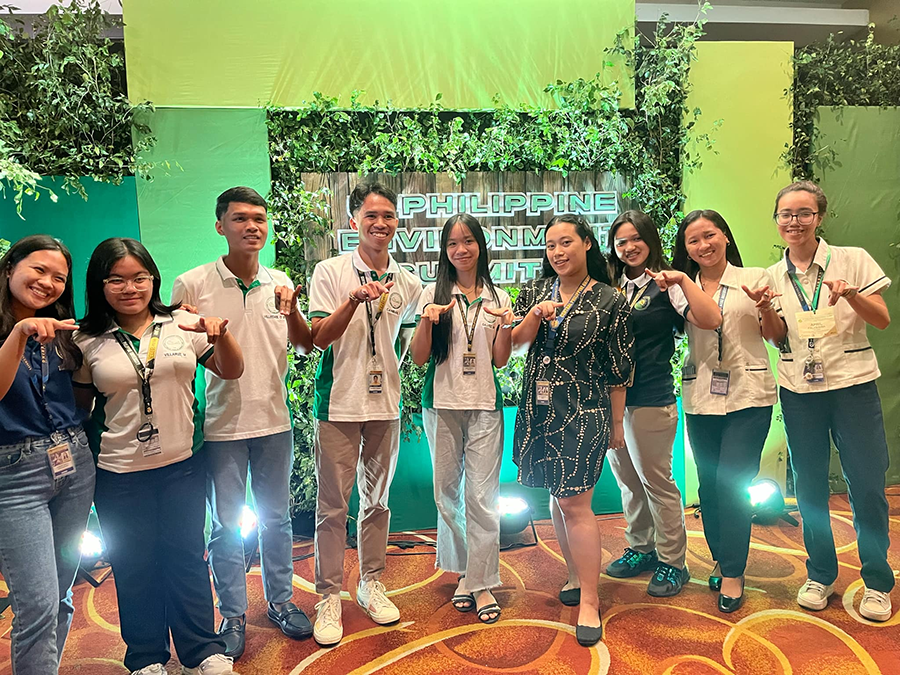By Mikee Natinga Norico

The Philippine Society of Agricultural and Biosystems Engineers – Pre-Professional Group (PSABE-PPG) CPU Chapter pose for a group photo, marking their commitment to sustainability at the 5th Philippine Environment Summit.
On February 19-21, 2025, the Centralian Reapers proudly represented Central Philippine University (CPU) at the 5th Philippine Environment Summit, held at the Grand Xing Imperial Hotel in Iloilo City. With the theme “Ako Ang Bukas: Quantum Leap to Climate Neutrality,” the summit emphasized urgent climate action, highlighting the importance of reducing carbon emissions and implementing sustainable initiatives.
Three organizations from the CPU College of Agriculture, Resources, and Environmental Sciences (CPU-CARES) actively participated in the summit: the Philippine Society of Agricultural and Biosystems Engineers – Pre-Professional Group (PSABE-PPG) CPU Chapter, the Central-Tipig Environmental Society, and the CPU Agriculture Students Association.
Organized by Green Convergence in partnership with the Department of Environment and Natural Resources (DENR) as co-convener, the biennial summit brought together environmental advocates from various sectors to present innovative projects and initiatives aimed at promoting sustainable development while addressing pressing environmental challenges.
The three-day event featured discussions on pivotal environmental concerns, starting with the introduction of the Greenhouse Gas (GHG) Calculator, a crucial tool in achieving climate neutrality. Breakout sessions explored the efforts of various organizations in measuring and reducing GHG emissions, aiming to encourage broader participation in the movement toward sustainability.
On the second day, discussions centered on the impacts of climate change, particularly its effects on the Philippines, one of the most vulnerable countries to environmental shifts. Breakout sessions dissected mitigation efforts across four key sectors: renewable energy, agriculture, transportation, and waste & industrial processes. The final day of the summit focused on climate adaptation strategies, featuring the National Adaptation Plan (NAP) and a comprehensive assessment of food security. Experts also led discussions on resiliency programs, tackling subtopics such as Climate Change Resiliency, Project Transform, Youth Programs, and Ecosystem Regeneration.
The summit highlighted impactful and replicable projects that drive real change, empowering stakeholders to take responsibility for minimizing their carbon footprint and advancing climate neutrality. By addressing environmental challenges through sustainable solutions, the event underscored the intersection of ecological conservation, economic progress, and social well-being.
As the summit concluded, the Centralian Reapers gained valuable insights into how individuals, institutions, and corporations can contribute to the fight against climate change. Their participation reaffirmed CPU’s commitment to sustainability and environmental stewardship, inspiring future initiatives that align with the university’s mission of fostering responsible and proactive leaders in the field of environmental conservation.
